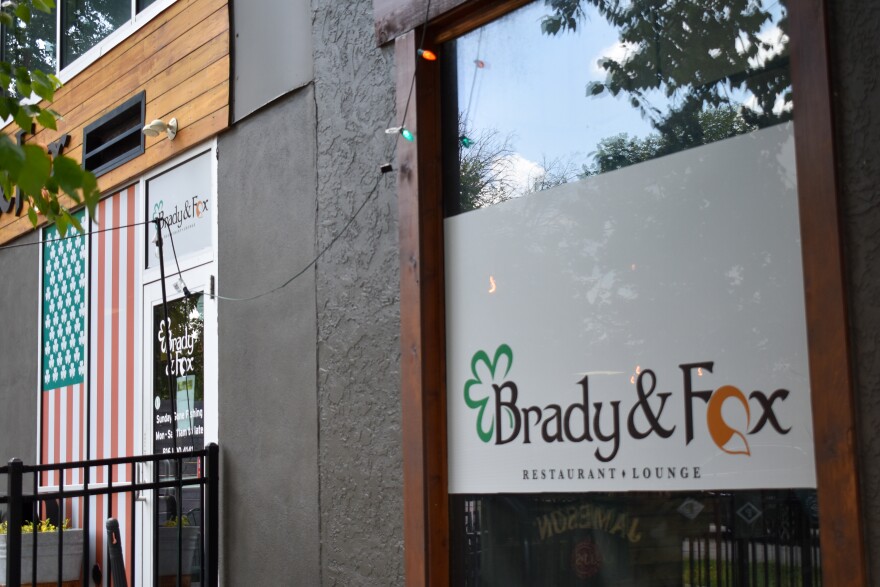Kansas City Police Chief Stacey Graves, frustrated by another high-profile homicide case allegedly caused by armed teenagers, blamed part of the problem Tuesday on a lack of consequences for the juveniles.
Two teens were charged with second-degree murder last week in connection with the fatal shooting of Shaun Brady, a 44-year-old Irish chef, husband and father of two. Brady was trying to intervene in a vehicle theft near his Brady & Fox restaurant in Brookside when he was shot at about 5 p.m. last Wednesday.
Graves also confirmed that Brady's vehicle, a Hyundai, was stolen from the restaurant lot just 34 hours after the shooting. It was recovered later Friday and the theft is being investigated, said Captain Jake Becchina, a police spokesman.
Graves said she believes the problem can be attributed to teens who start by stealing Hyundais and Kias, the top-stolen vehicles in the U.S. The youth then become emboldened and their crimes escalate further, she said, sometimes into homicides.
Graves said she's grown frustrated because the teens her officers arrest are often released from juvenile detention.
“The frustration comes not only with them having a lack of consequences and coming back out, but reoffending,” she said. “Us as law enforcement, we make arrests, but we see this escalation.”
Graves said she recently called the Juvenile Court Administrator with her “dire concerns,” seeking solutions. They have discussed keeping suspects longer and charging juveniles as adults if a homicide has occurred, she said.
Juvenile court officials declined to comment to KCUR about Graves’ comments through court spokesman Scott Lauck.
Three teens were also charged in the shootings at the Kansas City Chiefs Super Bowl parade in February that killed one and injured 24 others. Two were eligible to be charged as adults, but a judge decided against it in both cases.
A minor identified only as “R.G.” admitted to a felony charge of unlawful use of a weapon and was committed to the Division of Youth Services for nine to 12 months. Another, known only as “A.M.,” was released to home detention in June. His charges were amended and his case was resolved on August 21. Charges against the third juvenile were resolved recently and there are no further hearings on the case, Lauck said.
Graves said she's worried about absentee parents, after hearing from at-risk teens.
“I had one of them tell me, 'Hey, there’s nothing you guys can do, this starts in the home.' I’m not making this up. This is what this kiddo told me.”
Mayor Quinton Lucas, suggesting several responses to juvenile crime in Kansas City, also reflected on parenting in a post on X, formerly Twitter.
“If you have a son, you need to be in his life. You need to care. You need to steer him right. Forget about what the relationship is with his mom. Your son, our society, all of us need you there.”





